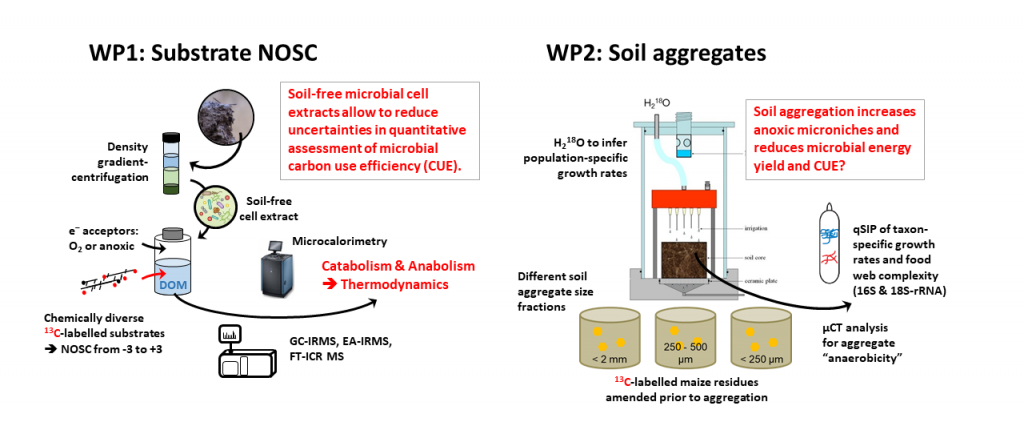Probing microbial carbon use efficiency in soil as a function of substrate chemistry, redox heterogeneity and soil aggregate structure

Microbial life in soils requires energy delivered by the oxidation or organic substrates coupled to reduction of various electron acceptors. The transformation and storage of soil carbon, microbial bio- and necromass are subject to the laws of thermodynamics, but energy-based descriptions of this important global carbon pump are still largely missing. The SoilSystems SPP aims to generate such a thermodynamic description of energy and matter fluxes in soil. Within the project, the CueNosc project proposes that microbial carbon use efficiency in soil can only be predicted when the chemical characteristics of the utilized substrates (oxidation state of C, No. of C atoms, functionalization) are considered; and that (II) the structural and physicochemical heterogeneities of the soil habitat can decrease substrate-dependent carbon use efficiency and thermodynamics. The project involves cutting edge quantitative stable isotope probing (qSIP) experiments with 13C-substrates and 18O-water, and next-generation sequencing of soil microbiomes. Embedded within the SPP, this project will make central and innovative contributions towards an improved quantitative understanding of carbon and energy fluxes in soil.
Link to English scientific abstract
Link to German scientific abstract
Research Team

Project Leader
thiele@uni-trier.de

Postdoc
milankumar.varsadiya@uni-bayreuth.de
University of Bayreuth
Faculty for Biology, Chemistry and Earth Sciences
Ecological Microbiology